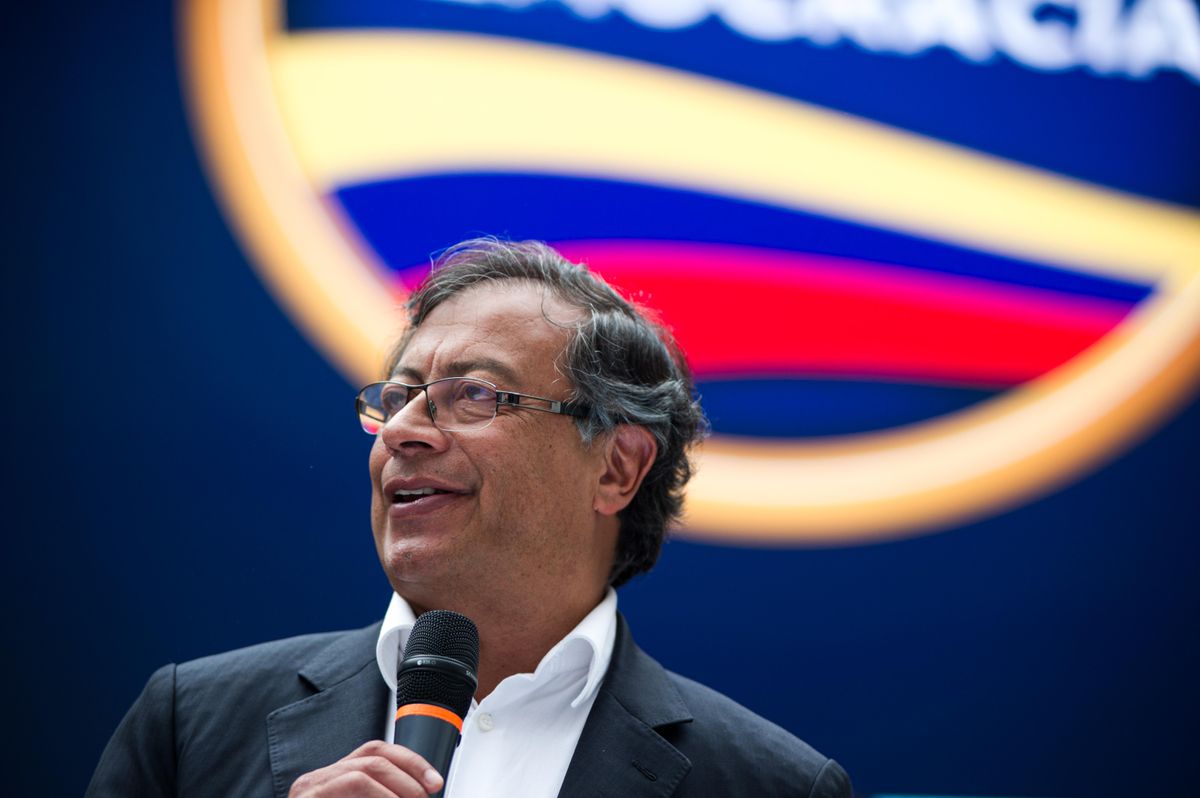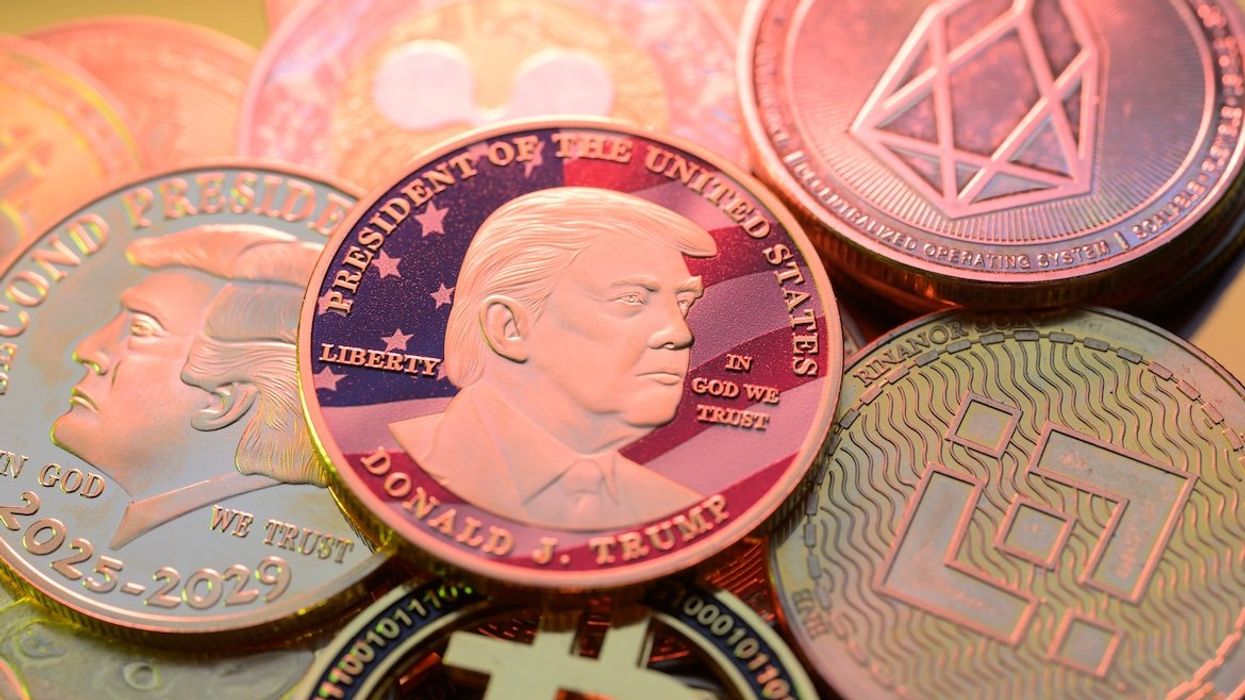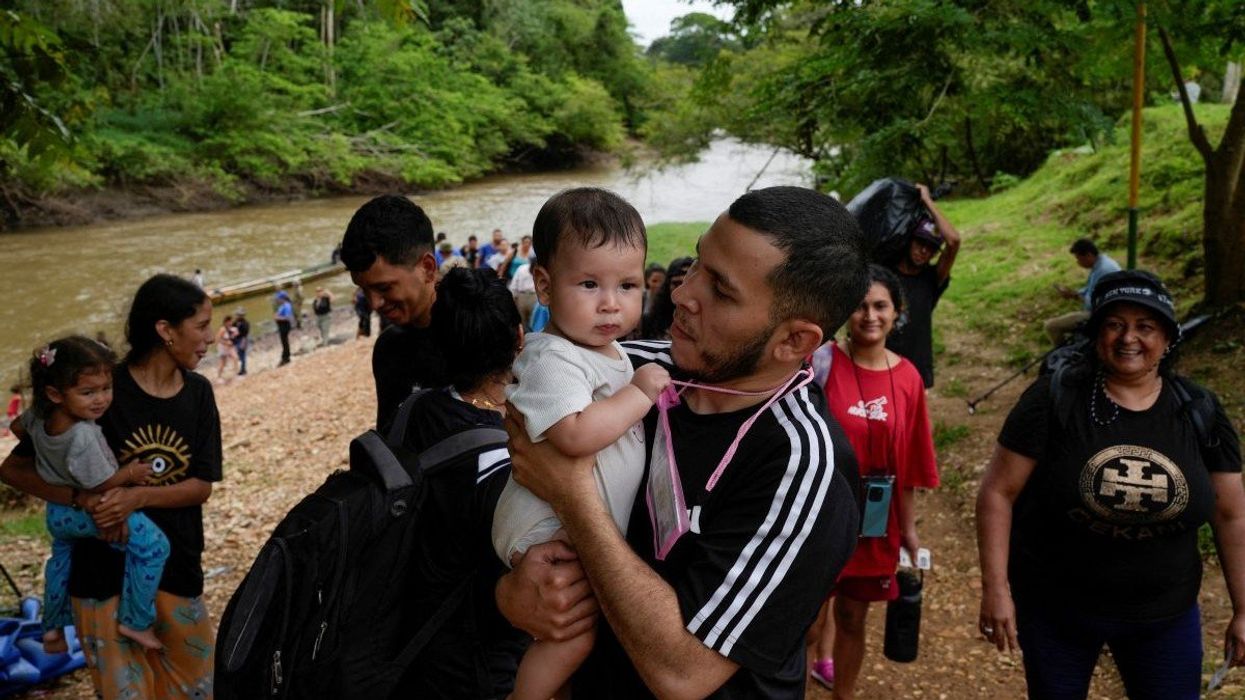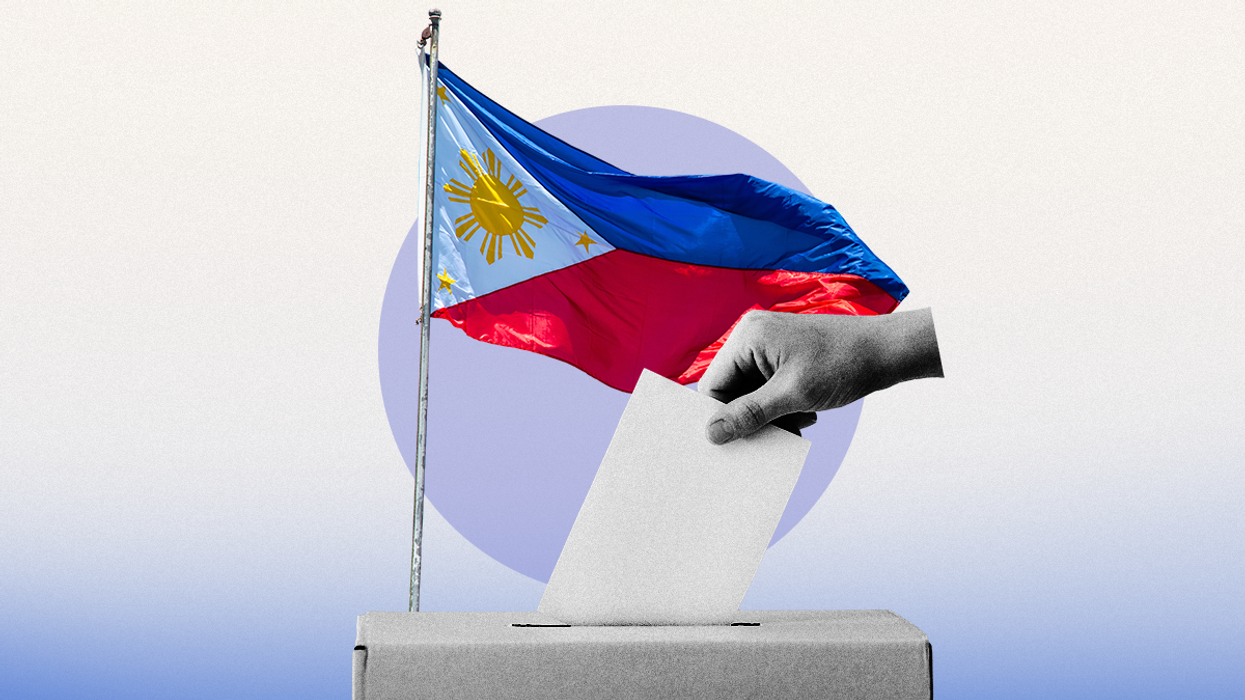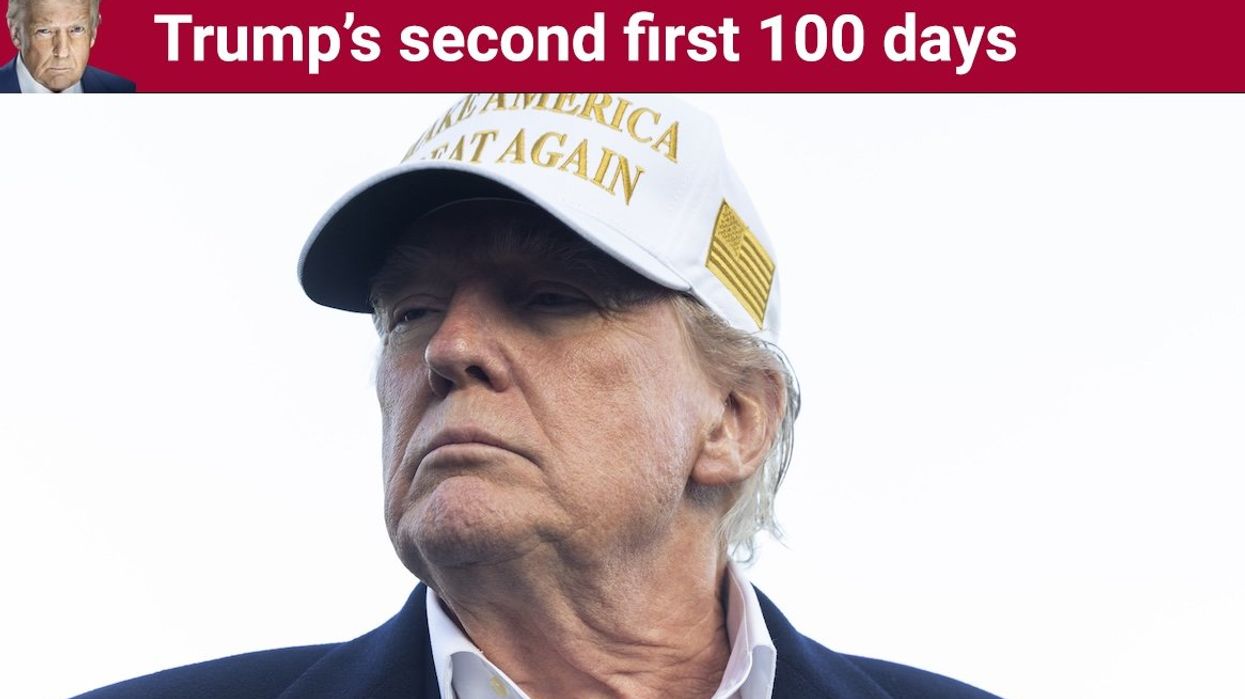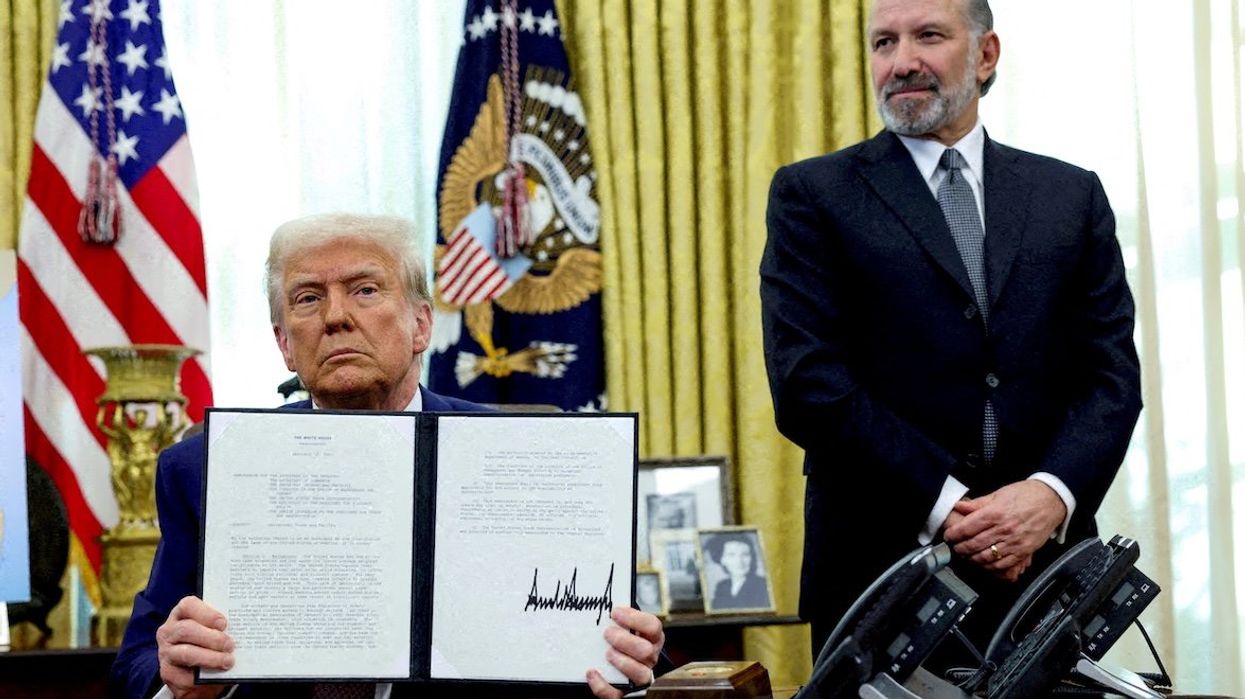As Colombians prepare to vote this Sunday for their next president, the country may be on the verge of a historic political shift. Though the race has tightened, senator and three-time presidential candidate Gustavo Petro maintains his lead in the polls, positioning him to become the country’s first-ever leftist leader. What are the drivers of this momentous change? We spoke with Eurasia Group analyst Sara Torres Raisbeck to find out.
Who is Gustavo Petro?
A former fighter with the M-19 leftist guerilla movement, Petro won a seat in congress in 1991 after the M-19 decided to put down its arms and join the political process. In the following years, he served in the lower and upper houses of congress, representing a series of different leftist political parties. He first ran for president in 2010 but finished a distant fourth in that contest. He served as the mayor of Bogotá from 2012 to 2015, though the Prosecutor General removed him from office temporarily for mismanaging the city’s garbage collection system. Petro ran again for president in 2018 on a leftist and anti-corruption platform but lost in a runoff to the current president, Iván Duque.
Since then, as senator, Petro has been the most prominent critic of the administration and of the country’s socially conservative, business-friendly political establishment more broadly. He has an environmentalist and nationalist vision for Colombia that involves moving the country away from its reliance on oil production while raising taxes on the rich, pardoning student debt, and creating a universal public pension system.
Why is he leading the polls?
Colombians are unhappy with the status quo. Discontent with a lack of economic opportunities had started to build even before the pandemic that drove over 3.5 million people into poverty and left nearly half a million unemployed. Massive street protests triggered in April 2021 by a failed tax reform deepened the desire for change. As the leading voice of the opposition, Petro has benefited the most from these conditions. His coalition received the most votes in the 13 March primaries and legislative elections, though it fell short of achieving majorities in congress.
Why has the country never had a leftist president?
A power-sharing agreement between the Conservative and Liberal parties known as the National Front (1958-1974) defined modern Colombian politics. Designed to end decades of violent struggle between the country’s two largest parties for control of the government, the agreement largely excluded other forces from the political process, particularly those who were most concerned about the inequalities of wealth and land distribution in the country. Beginning in the 1960s and early 1970s, several leftist guerrilla groups arose, among them the FARC and the M-19. In the 1980s and 1990s the conflict between the state and these groups became extremely violent.
In one notable incident in 1985, the M-19 occupied the Palace of Justice in a bloody siege that killed dozens and created a legacy of distrust toward the left. In that same period, paramilitary groups, many supported by drug cartels, sprang up across the countryside to fight the leftist militants. They also killed a series of left-leaning presidential candidates and thousands of political officeholders.
These years marked the exodus from politics of many leftist leaders and sympathizers. But increasing violence by leftist militant groups such as the FARC, which ultimately aligned itself with drug traffickers, built public support for a harsh crackdown by the Colombian military, especially under former President Alvaro Uribe, who was in power from 2002 to 2010.
So, how did the left recover?
Uribe had the highest approval ratings of any Colombian president on record, but support for his hardline (mano dura) policies started to ebb in 2007 following reports of civilians killed by the state’s security forces. When Uribe’s successor Juan Manuel Santos signed a peace agreement with the FARC in 2016, Uribe bitterly opposed it. The resulting polarization over the deal led a large segment of the population to sour on the center-right establishment represented by Uribe. Meanwhile, a newly enlarged middle class created by a period of rapid economic growth in the 2000s started demanding more social services and economic opportunities, especially for the nation’s youth. These trends have all benefited the left.
Who are Petro’s main challengers in the upcoming vote?
Following a recent rise in the polls, former Bucaramanga Mayor Rodolfo Hernández may be Petro’s biggest competitor. The owner of a construction business, Hernandez is running on an antiestablishment and anticorruption campaign platform that competes directly with Petro’s. He has the potential to attract not only voters seeking change, but also those who see Petro as too far to the left. Another leading contender is former Medellín Mayor Federico Gutiérrez, who is the candidate of the center-right coalition and is widely perceived as the continuity and pro-establishment candidate. The two top finishers in the May 29 vote will go to a runoff on June 19 if neither obtains more than 50% of the vote, which is likely.
What would a Petro administration look like?
Petro’s election would mark a historic shift leftward. Yet his room for maneuver would be limited by the state’s straitened finances, a lack of congressional majorities for his coalition, and high levels of political polarization. He would be forced to water down his ambitious proposals in the areas of tax and pensions, for example, to attract support from members of the opposition.
A Colombians prepare to vote, what will you be watching most closely?
Trends in voter turnout will be key, especially to determine whether Gutiérrez or Hernández makes it to a likely runoff against Petro. Voters in the coffee-producing region favor Gutiérrez while those in the center-west and center-southern regions of the country favor Hernández. Ahead of the election, the candidates will have one last chance to make their case to voters in a final debate on Thursday. Hernández has already said he won’t be participating, which could hurt him since he has less name recognition than Petro or Gutiérrez.
